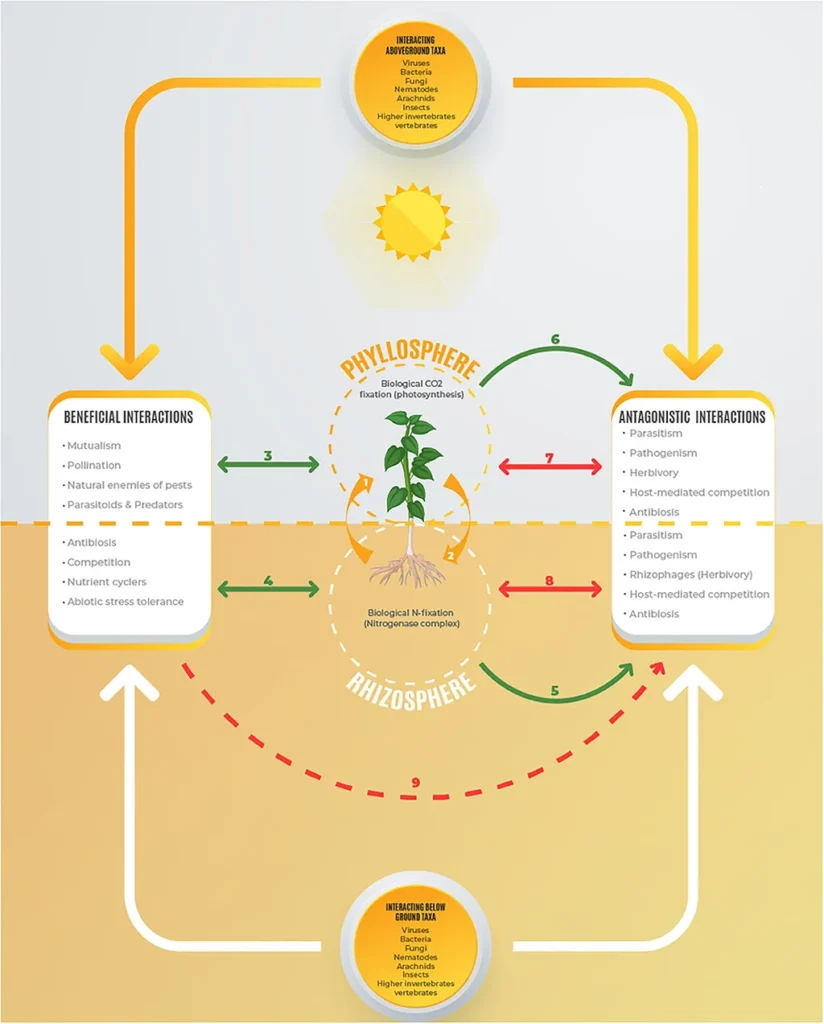In a groundbreaking study published in the International Journal of Agronomy (translated as the International Journal of Field Science), researchers have uncovered the potential of two Rhizobium sp. strains to significantly enhance the nutritional quality and antioxidant activity of soybean seeds. This research, led by Linda Manet from the Centre for Food, Food Security and Nutrition Research, opens new avenues for sustainable agriculture and could have profound implications for the food industry and beyond.
The study focused on the impact of inoculating seeds from three soybean varieties with Rhizobium sp. S1 and Rhizobium sp. S2. Over a 120-day growth period, the inoculated seeds were compared with non-inoculated controls. The results were striking. “We observed significant improvements in phytochemical concentrations, antioxidant activity, and nutritional quality across all varieties,” Manet explained. “This suggests that these Rhizobium strains could be game-changers in the quest for more nutritious and sustainable crops.”
One of the most notable findings was the enhancement of phytochemical compounds. Maksoy 4N seeds inoculated with Rhizobium sp. S1 showed the highest levels of polyphenols, flavonoids, and alkaloids. Meanwhile, Maksoy 4N seeds inoculated with Rhizobium sp. S2 exhibited the highest tannins and saponins. These compounds are not only crucial for plant health but also offer significant health benefits to consumers.
The study also revealed a marked increase in antioxidant activity. “The total antioxidant capacity (TAC) was significantly higher in inoculated seeds compared to controls,” Manet noted. This enhancement in antioxidant activity could lead to healthier food products, benefiting both consumers and the food industry.
Nutritional quality was another key area of improvement. Seeds from Maksoy 4N inoculated with Rhizobium sp. S2 had the highest protein and total sugar content, while TGX 1835 10E seeds inoculated with Rhizobium sp. S1 showed the highest fiber content. These findings highlight the potential of these Rhizobium strains to boost the nutritional value of soybean seeds, making them more attractive for commercial use.
The commercial implications of this research are vast. For the food industry, the ability to enhance the nutritional quality of crops through biofertilizers could lead to healthier food products and increased consumer demand. For the agricultural sector, the use of Rhizobium sp. S1 and S2 as biofertilizers could reduce the need for chemical fertilizers, promoting more sustainable farming practices.
As Linda Manet puts it, “This research is just the beginning. The potential applications of these Rhizobium strains are immense, and we are excited to explore how they can be integrated into larger agricultural systems to promote sustainability and improve food quality.”
The study, published in the International Journal of Agronomy, represents a significant step forward in the field of sustainable agriculture. By demonstrating the potential of Rhizobium sp. S1 and S2 to enhance the nutritional quality and antioxidant activity of soybean seeds, this research paves the way for more innovative and sustainable agricultural practices. As the world continues to grapple with the challenges of food security and sustainability, such breakthroughs are more important than ever.

